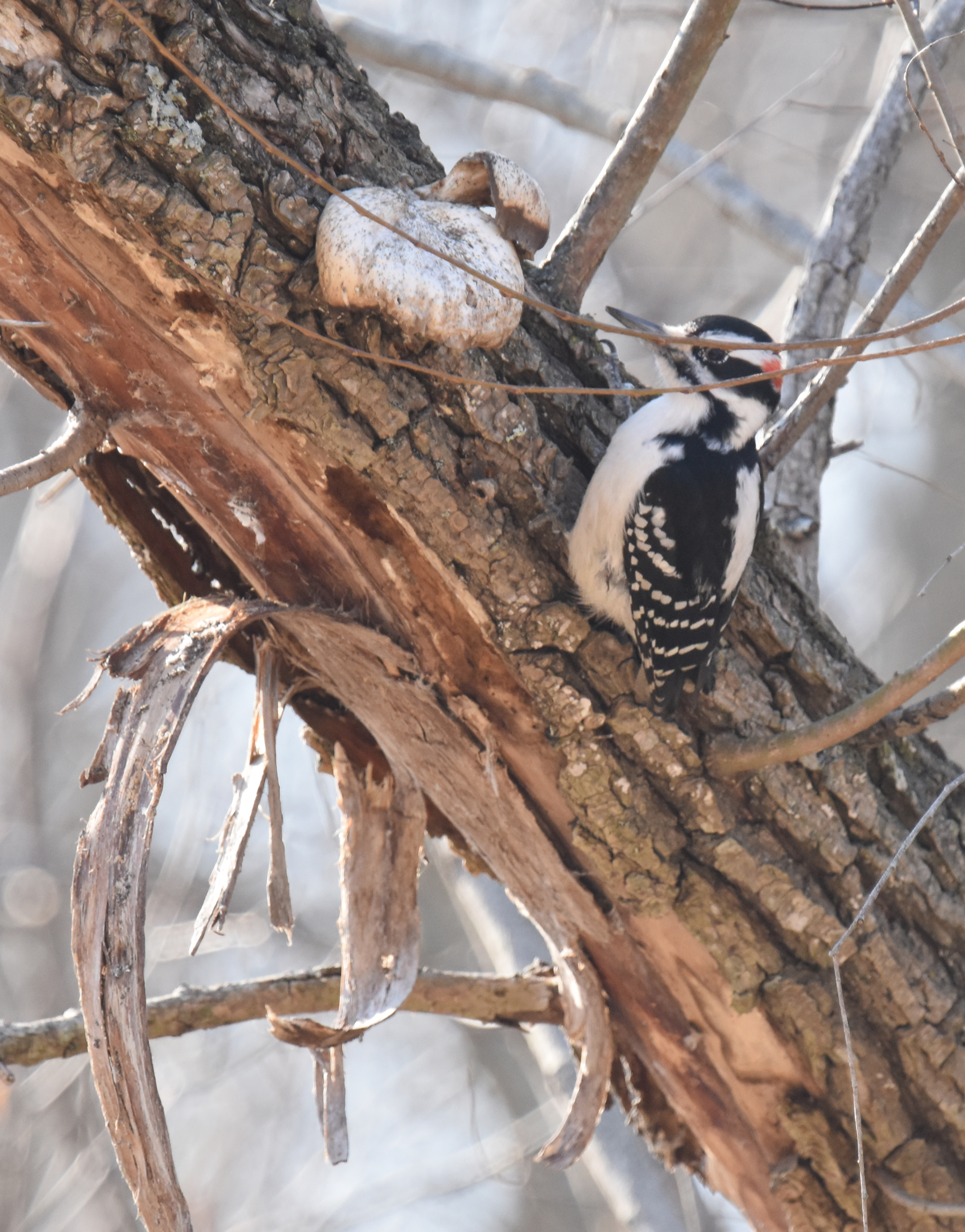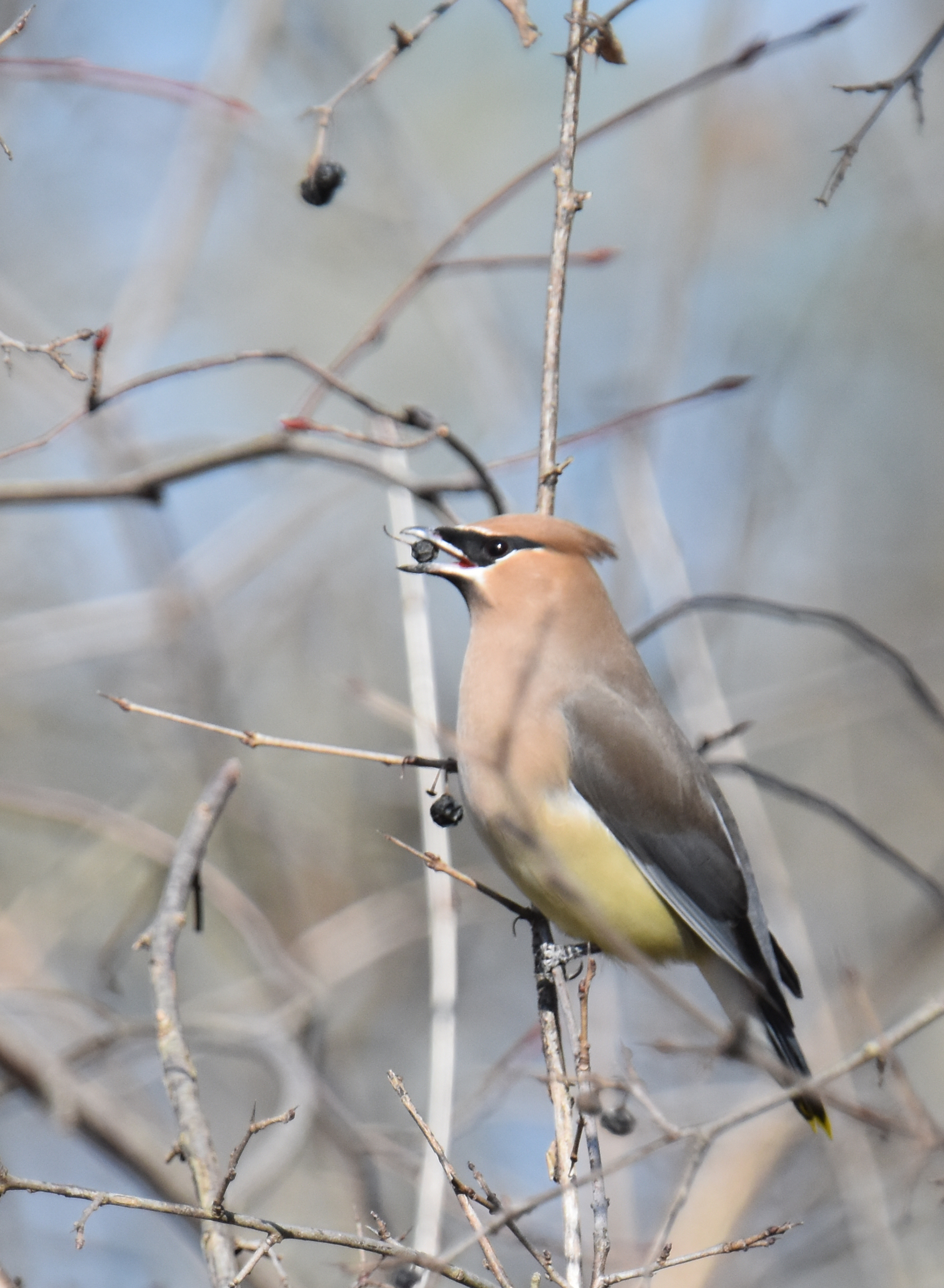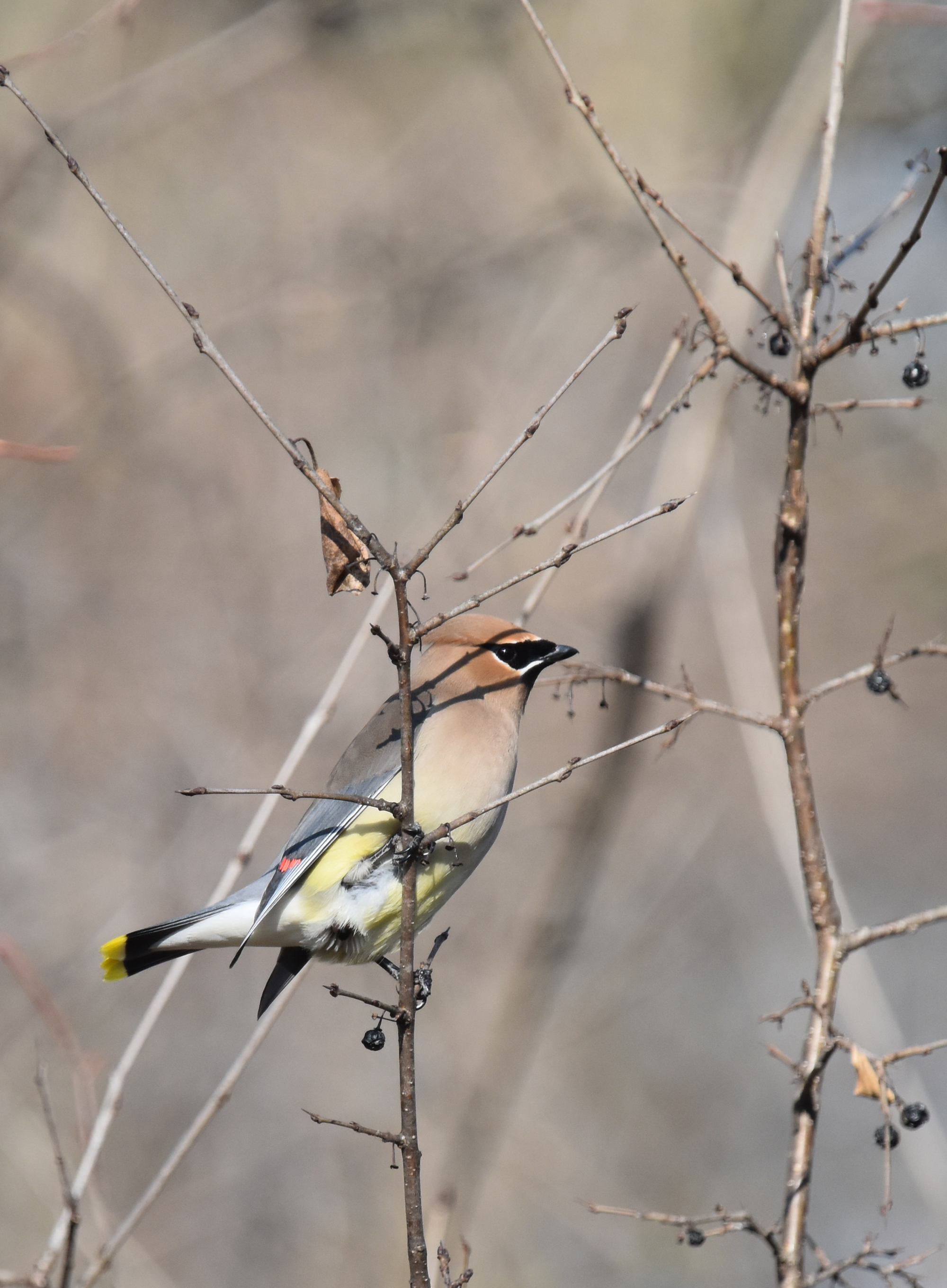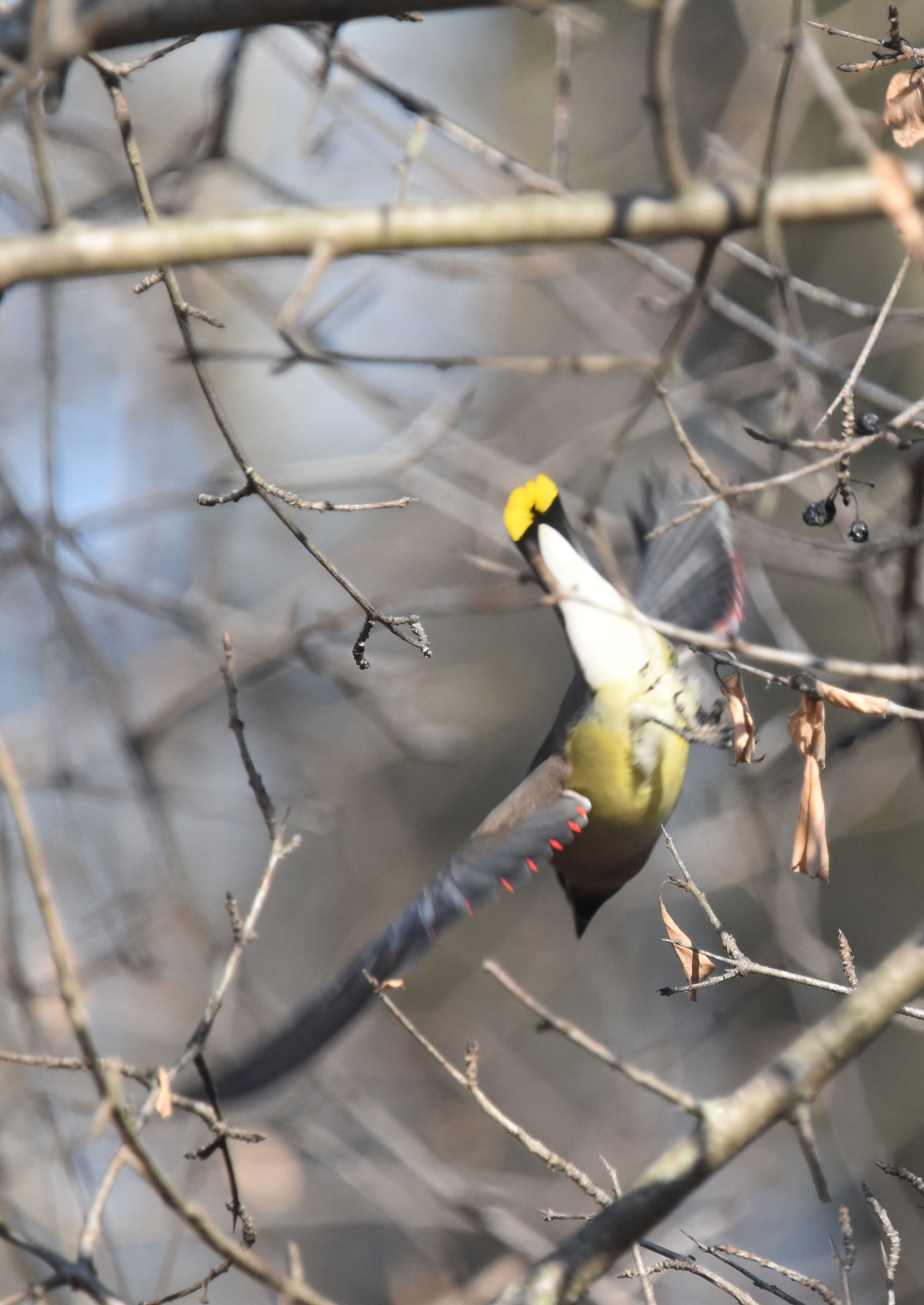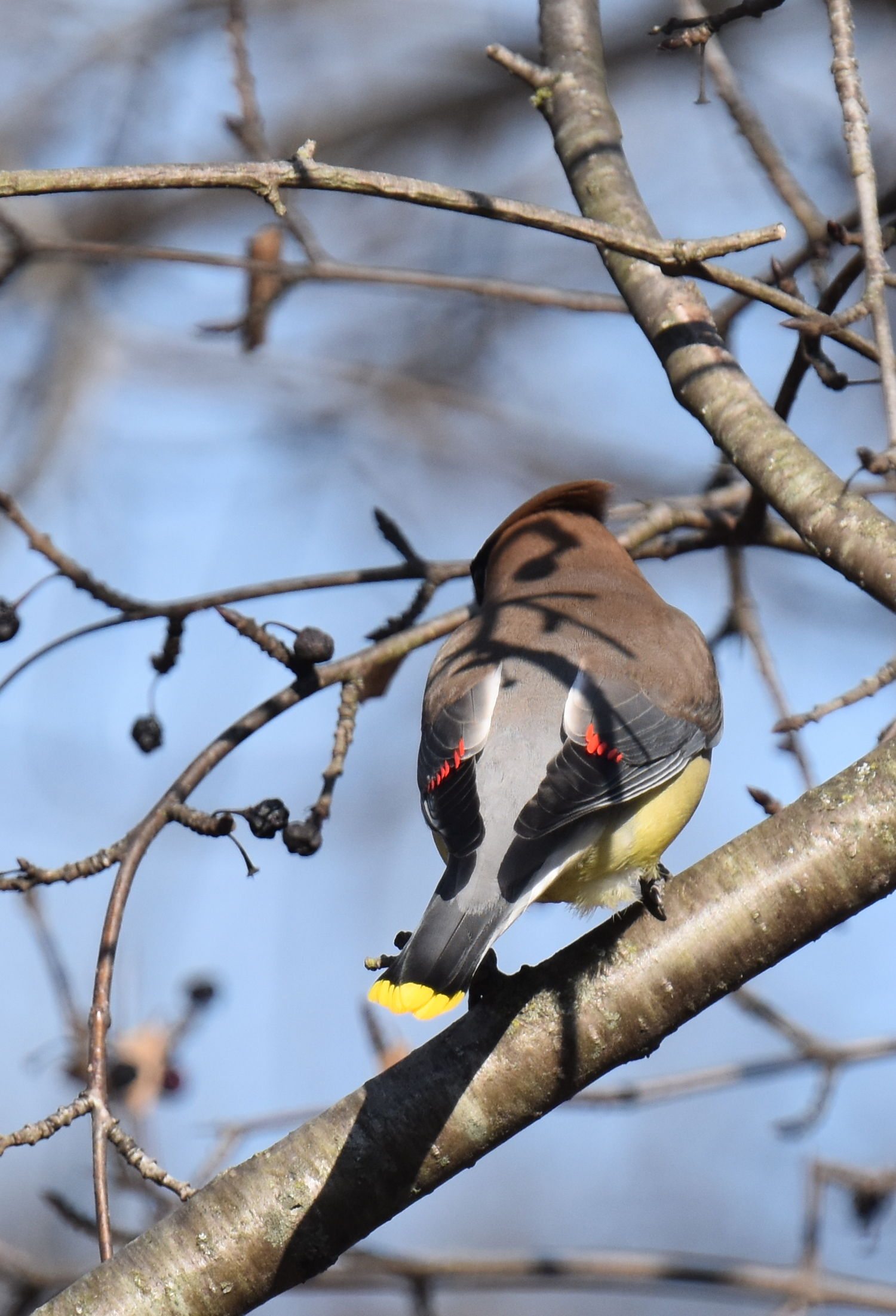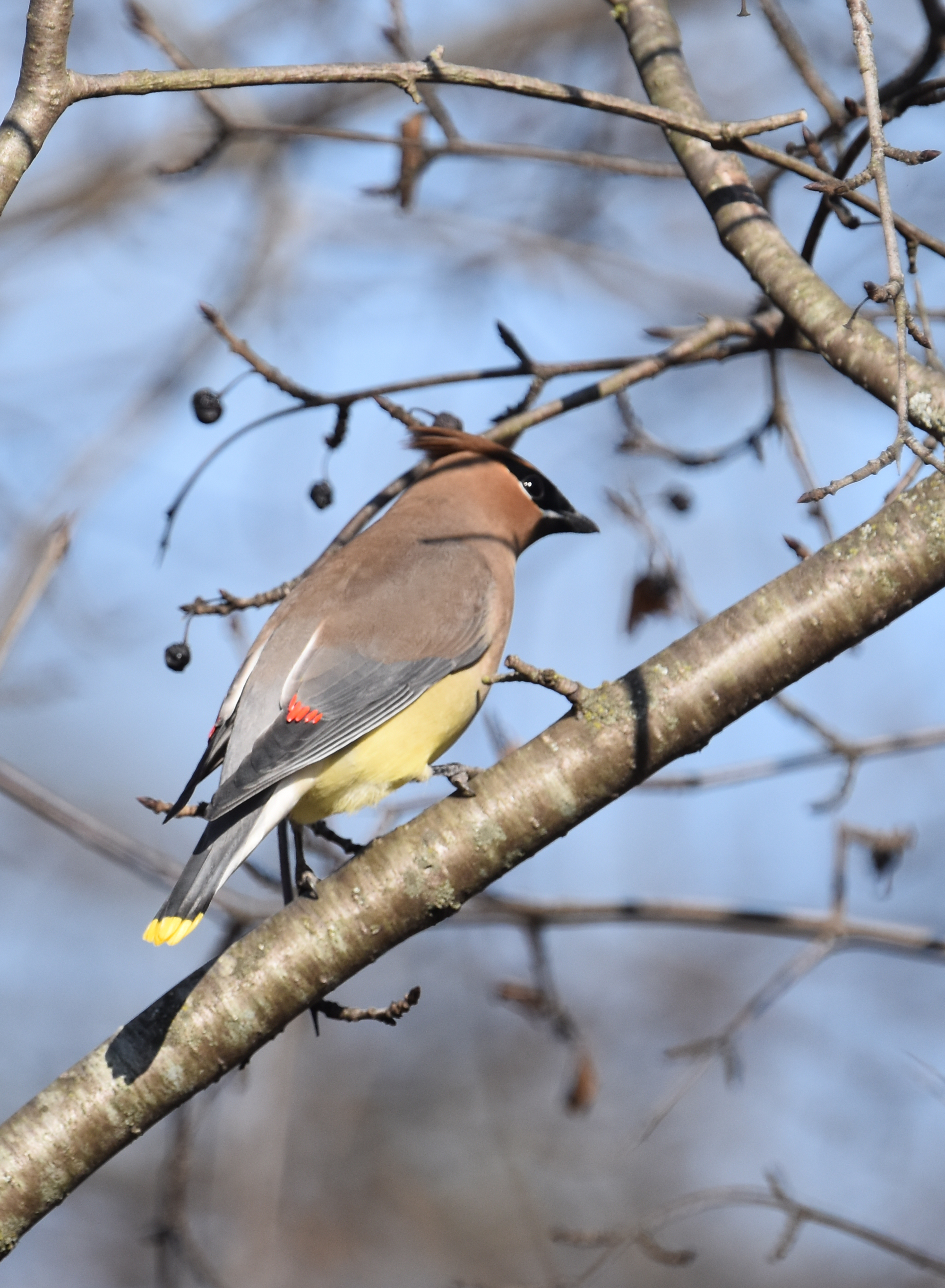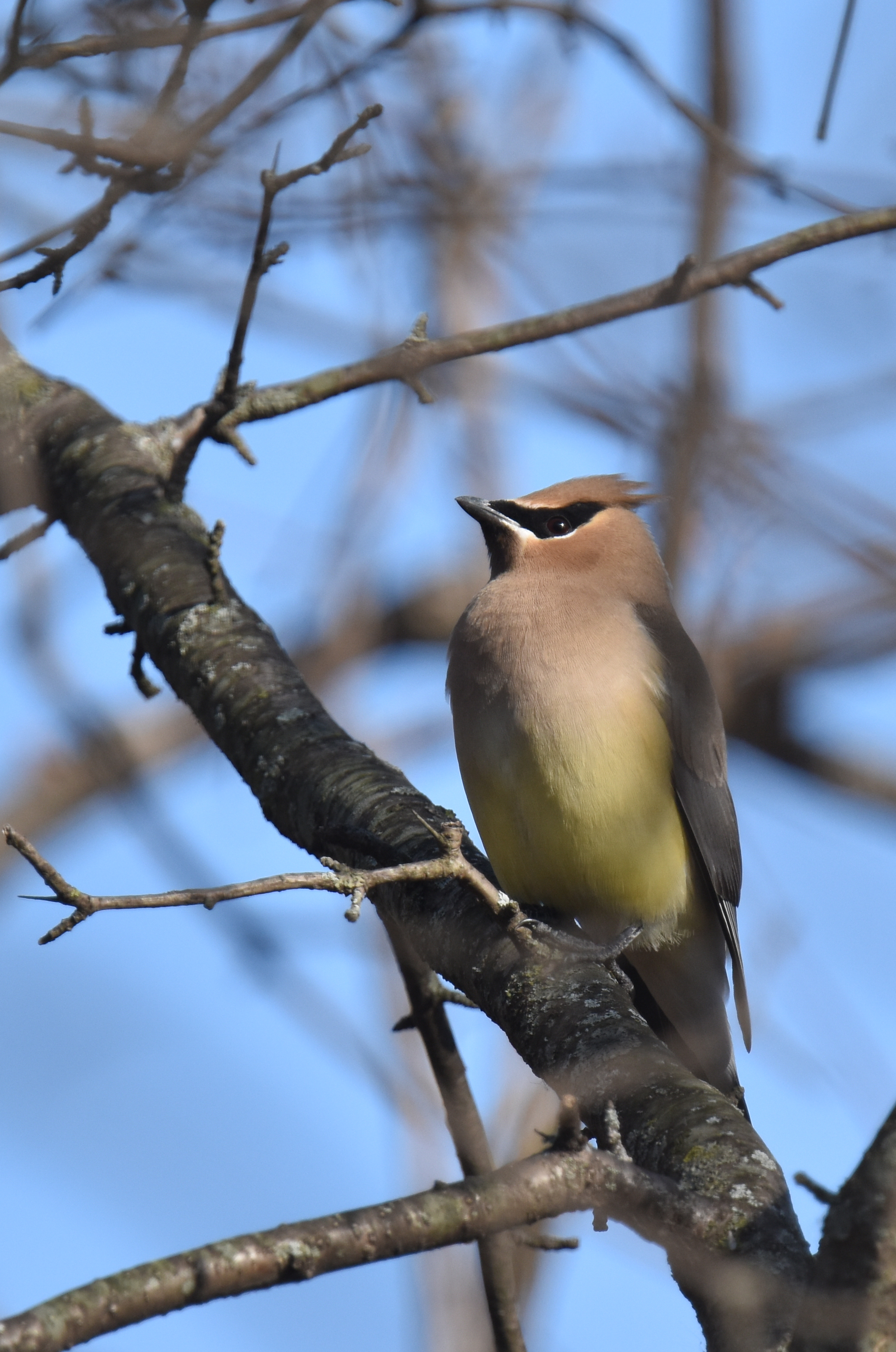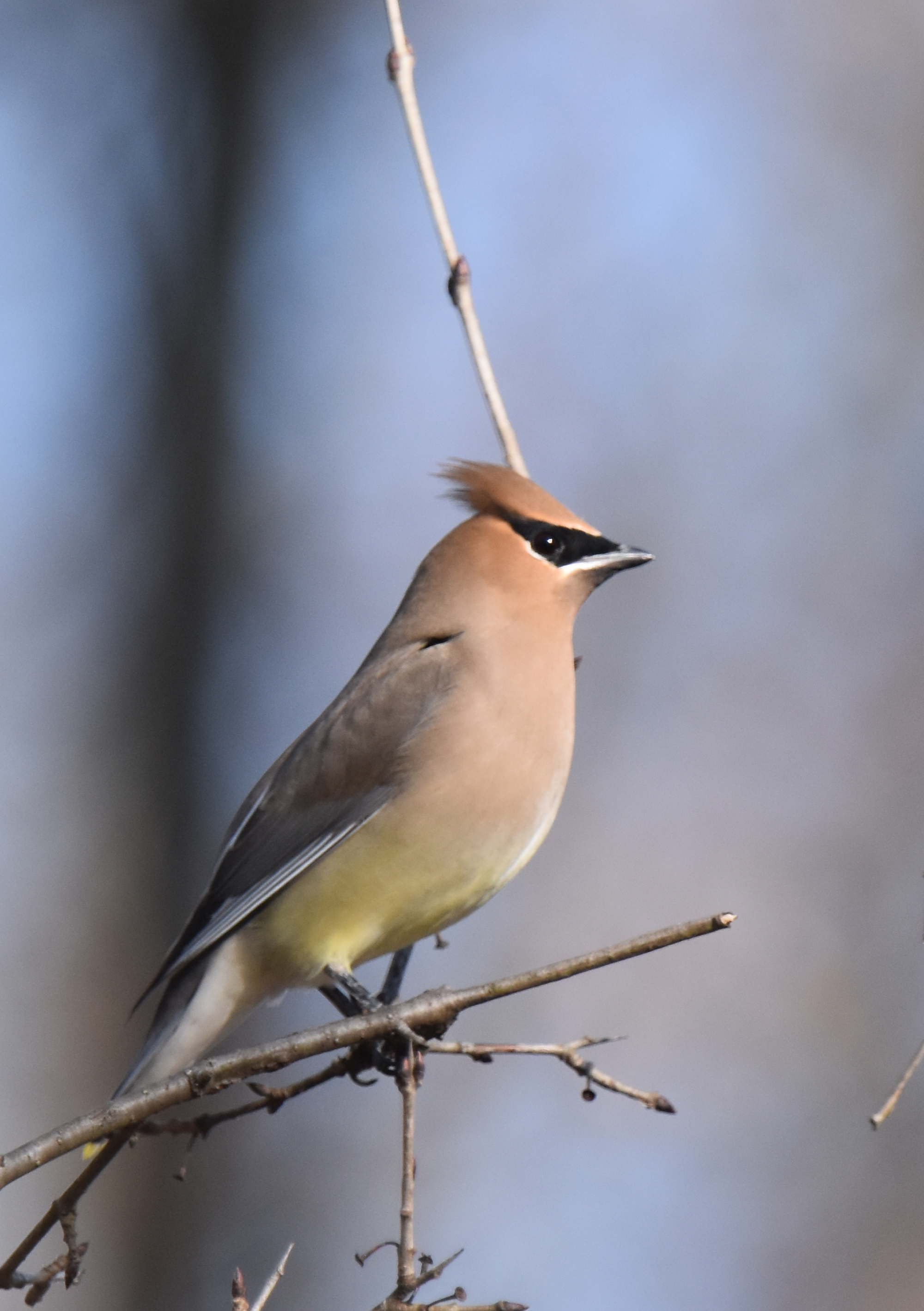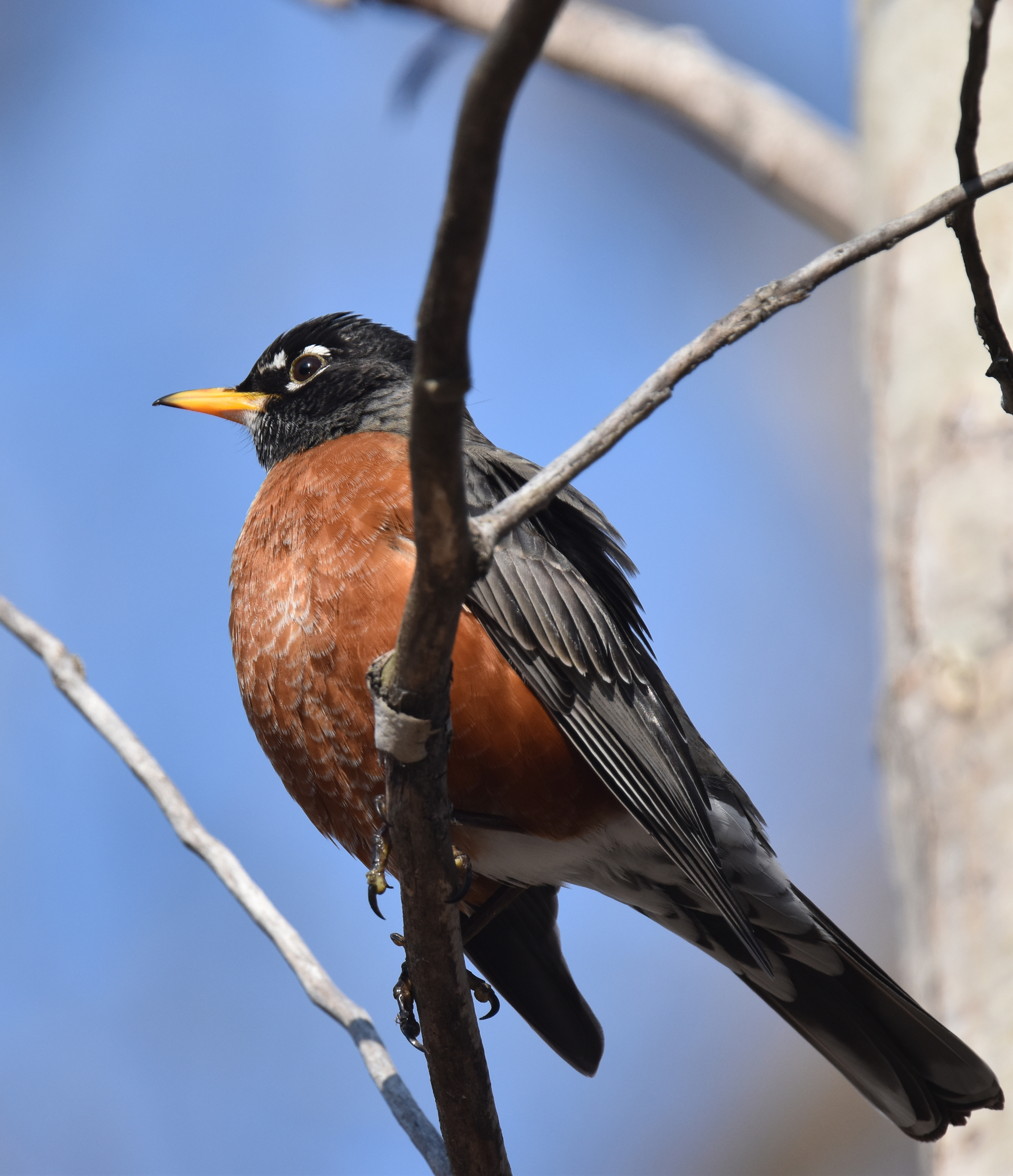On a late-February walk through the Rattray Marsh I thought I’d only see the usual paired-up Mallards, drumming Woodpeckers, and seeds of Sumac. So at the end of my march, I was happy to see something extra.
He should be able to find something in a tree this damaged!
Even Buckthorn Has Its Uses
This Waxwing has pinched a Buckthorn fruit ready to gulp.
I have spent several winter mornings cutting down some of a hundred or more Buckthorn bushes growing up along my fence line. I know I’m in for a prolongued battle as it re-grows easily from the roots and seems to actually grow stronger each time you cut it down.
The stewards of the Rattray Marsh face the same problem. Despite periodic removal, the Buckthorn always thrives again.
While walking up the Old Poplar Row spur path towards home, we suddenly found ourselves in the midst of a flock of Cedar Waxwings.
They were feeding on the Buckthorn fruit in between forays across the path beside the small land-locked marsh.
I’ve never noticed the way the little red “sealing wax” tips of the Waxwings look when they fly–kind of neat!
Do Cedar Waxwings Over-winter in Southern Ontario?
Most northern Cedar Waxwings migrate each autumn, like the ones north of Lake Huron. However, they may only move as far down as Lake Ontario and Erie. Some years they continue further in to the USA, other years they don’t.
I decided to check eBird to see if there had been sightings of Cedar Waxwings in my area in December and January. There were fewer than 5 sightings in December 2019, although I admit lots of people don’t use eBird. There were 2 sightings in the first week of January 2020. There are sightings in about 5 locations of presumably different flocks in February.
So it’s inconclusive. Given this mild winter, though, I think these birds I met at the Rattray Marsh have been in the Mississauga area all winter. They could be early returning migrants but there is no way to be sure given the sporadic sightings all winter.
Regardless of how far they have journeyed, they were great to see. Among other things, in winter, they eat fruit like Mountain Ash berries and Buckthorn. In summer, I often see them catching insects along the Credit River at Riverwood.
Now if I could just catch up with the Bluebirds that have been at the Rattray all winter, I would have photos of another “winter warrior” to share–maybe I will finally see them this week?!
Hey, I qualify as a Winter Warrior too!
Related Reading
Join In
Do you like the sleek glossy look of Cedar Waxwings? Please share your views with a comment.

